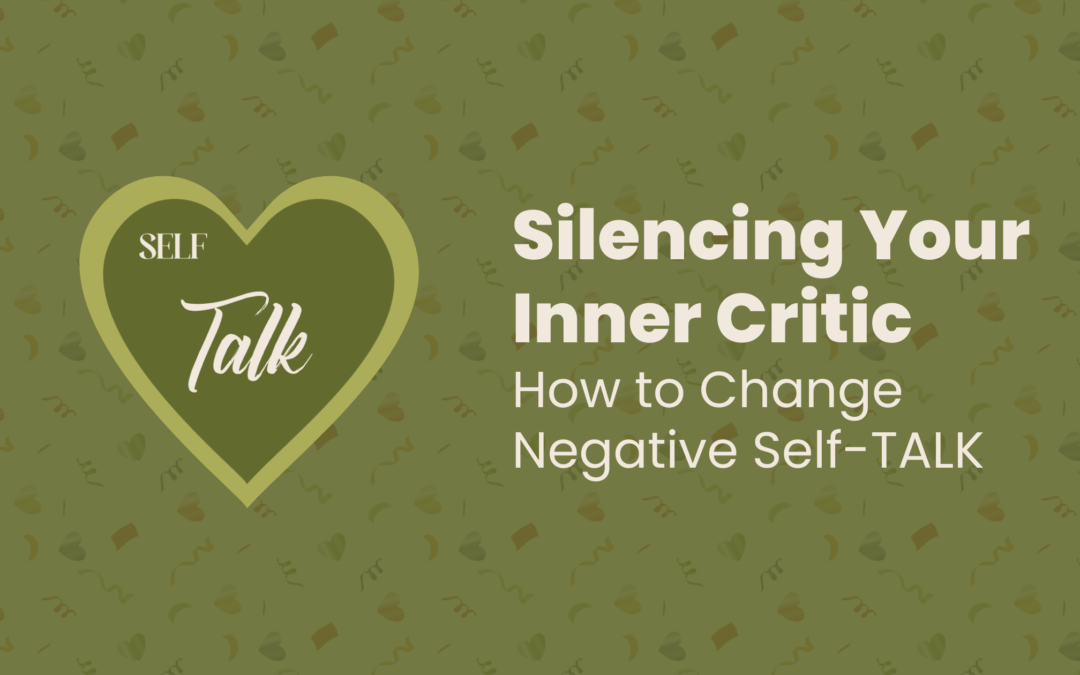Do you have an unwanted friend? One that appears at really awkward moments, like when you’re getting dressed, or walking into a meeting, or about to try something new. They have this really annoying voice, don’t they? It’s annoying because it’s always telling you things you don’t want to hear.
Things like “You’re not good enough,” “You’re too old for this,” or “Who do you think you are?”
That’s your inner critic — and it can be exhausting listening to all that nonsense, can’t it? Because that’s what it is – nonsense.
For women stuck in their midlife muddle, that inner critic is more active than ever. Navigating professional careers, an evolving set of caring responsibilities and the rollercoaster of peri-menopause can make midlife messy enough, without your inner critic getting involved. It feeds off stress, thrives in chaos and loves to get involved when you’re already feeling vulnerable.
But there is some good news – just because it’s loud, doesn’t mean it’s right!
The Power of Self-TALK
Self-talk is one of the four ingredients of the 4SELF Confidence Recipe. It is the things we say to ourselves, both consciously and unconsciously. It has the power to lift us up or drag us down.
Your self-talk can become a pattern, and over time, that pattern shapes your beliefs, your behaviour, and ultimately, your confidence. So, it follows that negative and critical self-talk will lead to low confidence.
So how do you shift it to be more positive?
Step 1: Tune in
The first step is to notice what your inner critic is saying. Often, these thoughts run on autopilot — so familiar, we don’t even question them.
In moments where you feel your confidence dip, pause and listen to what thoughts you’re having. Ask yourself:
-
What am I telling myself right now?
-
Is this thought kind?
-
Is it true?
It can help to note these for a few days, jotting down negative statements you catch yourself thinking. You’ll likely start to see some patterns.
This is something I get my clients to do before we start our coaching sessions. Often, with my objective eye, I spot patterns and underlying causes for us to work on together.
Step 2: Identify the triggers
Does your inner critic get louder when you’re tired, under pressure, or around certain people?
Are there specific situations – like presenting at work or dealing with family conflicts – that make you more prone to negative self-talk?
Understanding the triggers helps you to be prepared and stamp it out quickly next time it happens. It also allows you to treat yourself with more compassion.
Step 3: Name your inner critic
It may sound silly, but giving your inner critic a name can help you create distance from it. Call it whatever feels right to you. Mine is called Dilbert!
The point is to stop identifying with that voice. It’s not you — it’s just one version of a story you’ve been told (or told yourself) over time.
Step 4: Reframe the message
Once you’ve caught a negative thought, the goal isn’t to suppress it — it’s to reframe it.
Instead of:
“I’m failing at everything.”
Try:
“I’m juggling a lot, and I’m doing my best — and that’s enough today.”
Instead of:
“I look awful — nothing fits me anymore.”
Try:
“My body is changing, and that’s okay. I can find ways to feel good in it again.”
I have two favourite ways of reframing. The first is to use the word “yet”.
“I’m no good at that, yet. And I can learn, then I will be great”
The second is to ask yourself, “where is the evidence?”
“What evidence do I have that I’m no good at XYZ?” – I bet you’ll find more evidence that you are good at it, than that you’re not.
The more often you practice reframing, the easier it becomes to shift your mindset.
Step 5: Speak to yourself like a friend
You would never talk to your best friend the way your inner critic talks to you. So why is it okay when it’s you?
Next time you catch that critical voice, ask yourself: What would I say to a friend in this situation?
Then say it to yourself — out loud, if you need to hear it clearly.
Why this matters right now
When you’re in the midlife muddle, your confidence may feel like it’s taking hit after hit. Whether it’s the hormonal changes, career pressures and challenges, or the weight of looking after everyone else. But your self-talk is one area where you can start to take your power back.
You may not be able to control all the stressors around you, but you can choose how you speak to yourself in the face of them. And that choice? It’s transformational.
Journalling Question: What negative thoughts do you often repeat to yourself, and how can you reframe them?
Take five or ten quiet minutes today. Write them down. Then write your own, kinder, truer version. Your inner dialogue is a habit — and like any habit, it can be changed.

